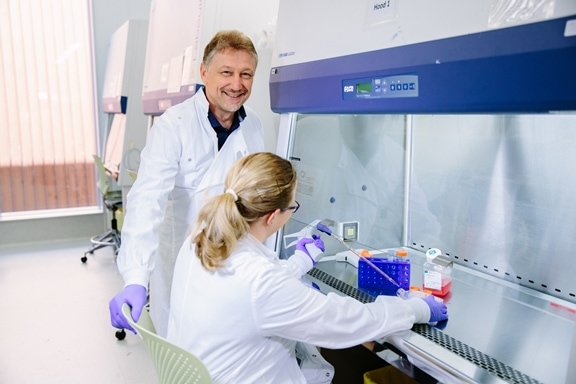
Personalising immunotherapy for breast cancer
Published: 10/7/19 11:23 PM

Riccardo Dolcetti
A certain class of drugs that stimulate the immune system to attack cancer has shown promising results in previously untreatable cancers. However, at present, these drugs are only effective in a small number of breast cancers and may cause adverse immune reactions due to their lack of specificity. As such, there is a need to tailor tumour fighting immune responses. This can be achieved by directing specific molecules (antigens) that induce immune responses to better target individual tumours.
Despite recent technological advances, the practice of identifying antigens that are specific to tumour cells remains a complex issue. Using this for therapeutic application is still limited by the lack of flexible and effective platforms for antigen-specific vaccination.
To overcome these limitations, NBCF-funded Professor Riccardo Dolcetti has developed a method to identify the unique antigens expressed by each individual breast cancer that can be targeted with personalised immunotherapy – using parts of one’s immune system to target cancer. This innovative approach draws from the use of a tailored NanoEmulsion vaccine delivery technology, which makes it possible to selectively target living antigens to Dendritic Cells which are critical for initiating anti-tumour immune responses in the body.
Suitable animal models and combination with currently used drugs able to positively modulate immune responses will first be used to study the effectiveness of this innovative therapeutic strategy and justify its clinical application. The results of this study may improve personalised immunotherapy of breast cancer, boosting the use of these new tumour fighting antigens specifically for breast cancer treatment.